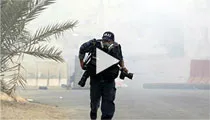Anti-press violence dipped slightly, but impunity persisted in past attacks. The prosecutor in charge of investigating the 2011 slaying of TV journalist Pedro Alfonso Flores Silva was murdered himself in April 2012, the same week he was to announce his findings. The following month, national police announced that Flores’ murder had been ordered by a local mayor in reprisal for the journalist’s reporting on government corruption, but the mayor was never formally charged in the case. Separately, the former mayor of the city of Coronel Portillo was acquitted in May in connection with the 2004 murder of radio journalist Alberto Rivera Fernandez. After condemnation by the Inter-American Court of Human Rights, the Peruvian Supreme Court overturned its own decision to free Alberto Pinto, former head of the military’s intelligence service, who had been serving a 15-year sentence for the 1990s-era murders of civilians, including journalist Pedro Yauri. Pinto went into hiding in the face of an arrest warrant. Several assaults were reported. One journalist was beaten unconscious after reporting on local corruption. Journalists who covered violent protests against a mining project were attacked by police and demonstrators. No journalists were imprisoned in 2012, but two were given suspended prison sentences on criminal defamation charges. A bill that eliminated jail terms for defamation has been stalled in Congress since mid-2011.
Peru
» Setbacks in murder inquiries highlight widespread impunity.
» Journalists convicted of criminal defamation as reform bill languishes.
Anti-press violence dipped slightly, but impunity persisted in past attacks. The prosecutor in charge of investigating the 2011 slaying of TV journalist Pedro Alfonso Flores Silva was murdered himself in April 2012, the same week he was to announce his findings. The following month, national police announced that Flores’ murder had been ordered by a local mayor in reprisal for the journalist’s reporting on government corruption, but the mayor was never formally charged in the case. Separately, the former mayor of the city of Coronel Portillo was acquitted in May in connection with the 2004 murder of radio journalist Alberto Rivera Fernandez. After condemnation by the Inter-American Court of Human Rights, the Peruvian Supreme Court overturned its own decision to free Alberto Pinto, former head of the military’s intelligence service, who had been serving a 15-year sentence for the 1990s-era murders of civilians, including journalist Pedro Yauri. Pinto went into hiding in the face of an arrest warrant. Several assaults were reported. One journalist was beaten unconscious after reporting on local corruption. Journalists who covered violent protests against a mining project were attacked by police and demonstrators. No journalists were imprisoned in 2012, but two were given suspended prison sentences on criminal defamation charges. A bill that eliminated jail terms for defamation has been stalled in Congress since mid-2011.
-
86%
Impunity in journalist murders -
35%
Abuses by public officials -
2
Defamation Convictions -
17
Month Delay
Only one of seven journalist murders since 1992 has been solved, according to CPJ research. Government and military officials are suspected in more than half of the cases.
| 14% | Criminal Group |
| 43% | Government Officials |
| 14% | Military Officials |
| 14% | Political Group |
| 14% | Unknown |
The Peruvian National Association of Journalists (ANP) found that public officials were behind more than a third of anti-press abuses documented between January 1 and May 3, 2012. Abuses included assaults, threats, abductions, instances of obstruction, and cases of legal harassment. Journalists who report on sensitive topics such as corruption and crime were especially at risk.
| 17 | Public Officials |
| 16 | Civilians |
| 11 | Not Identified |
| 4 | Media Owners or Management |
| 1 | Police or Military |
Juan Carlos Tafur, editor of the daily Diario 16, and Roberto More Chávez, a reporter for the paper, were convicted of criminal defamation charges in connection with an article in Diario 16 that linked a prominent retired general to a family with alleged connections to drug trafficking.
2 Years | Suspended prison sentence handed down to Tafur and More. |
$22,000 | Damages that Tafur and More were ordered to pay. |
A bill that eliminates prison terms for defamation while increasing fines and community service has been stalled since July 2011, when Congress approved the changes in the penal code. Former President Alan García sent the bill back to Congress with modifications later that month. The measure has not advanced since that time, according to the regional press group Instituto Prensa y Sociedad. Peru's defamation laws are increasingly out of step with regional trends.
2007: | Mexico eliminated prison terms for defamation at the federal level. |
2009: | Costa Rica repealed prison terms for criminal defamation. |
2009: | Argentina revoked criminal defamation provisions regarding information of public interest. |
2009: | Brazil voided the 1967 Press Law, which imposed harsh penalties for libel and slander. |

